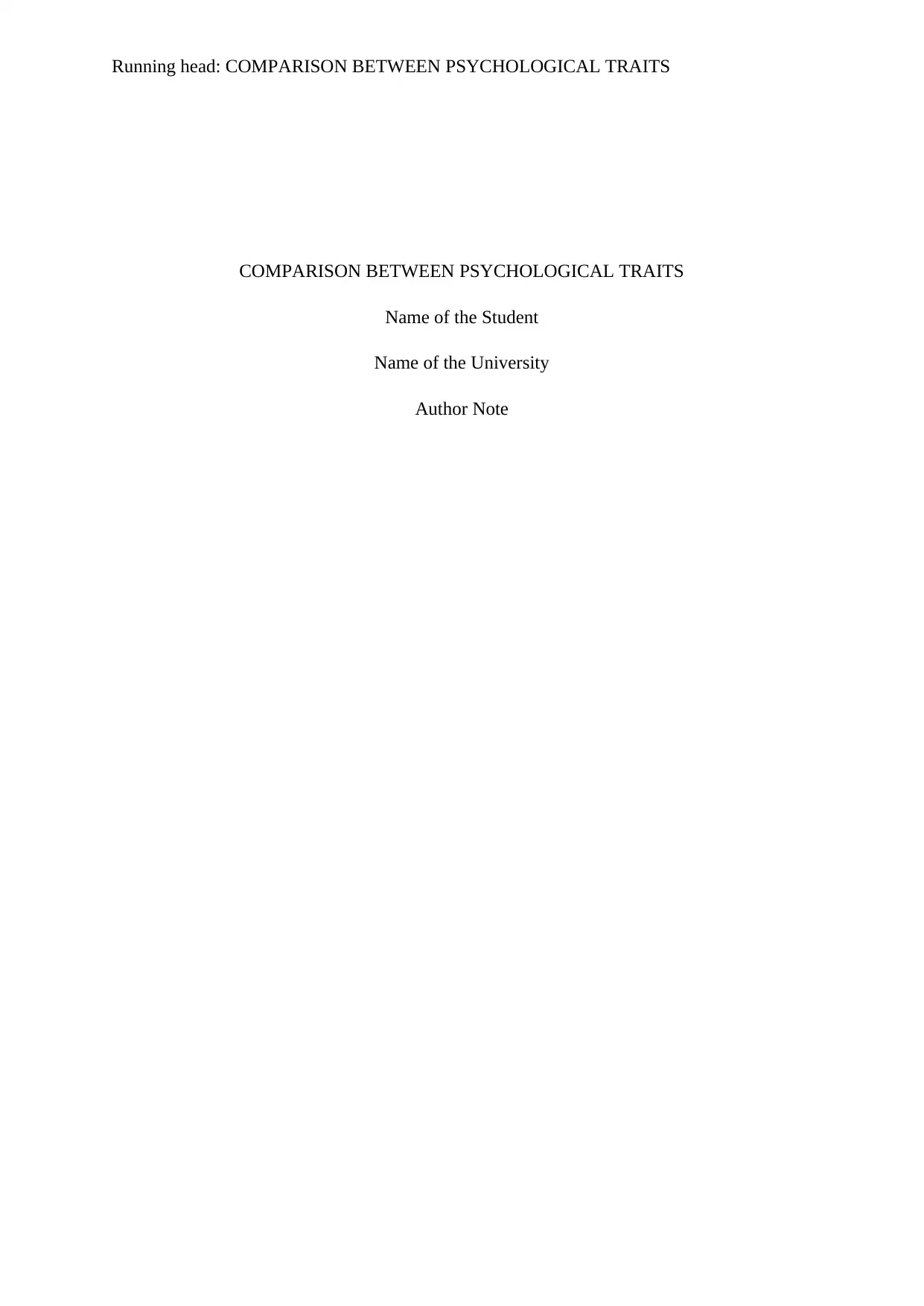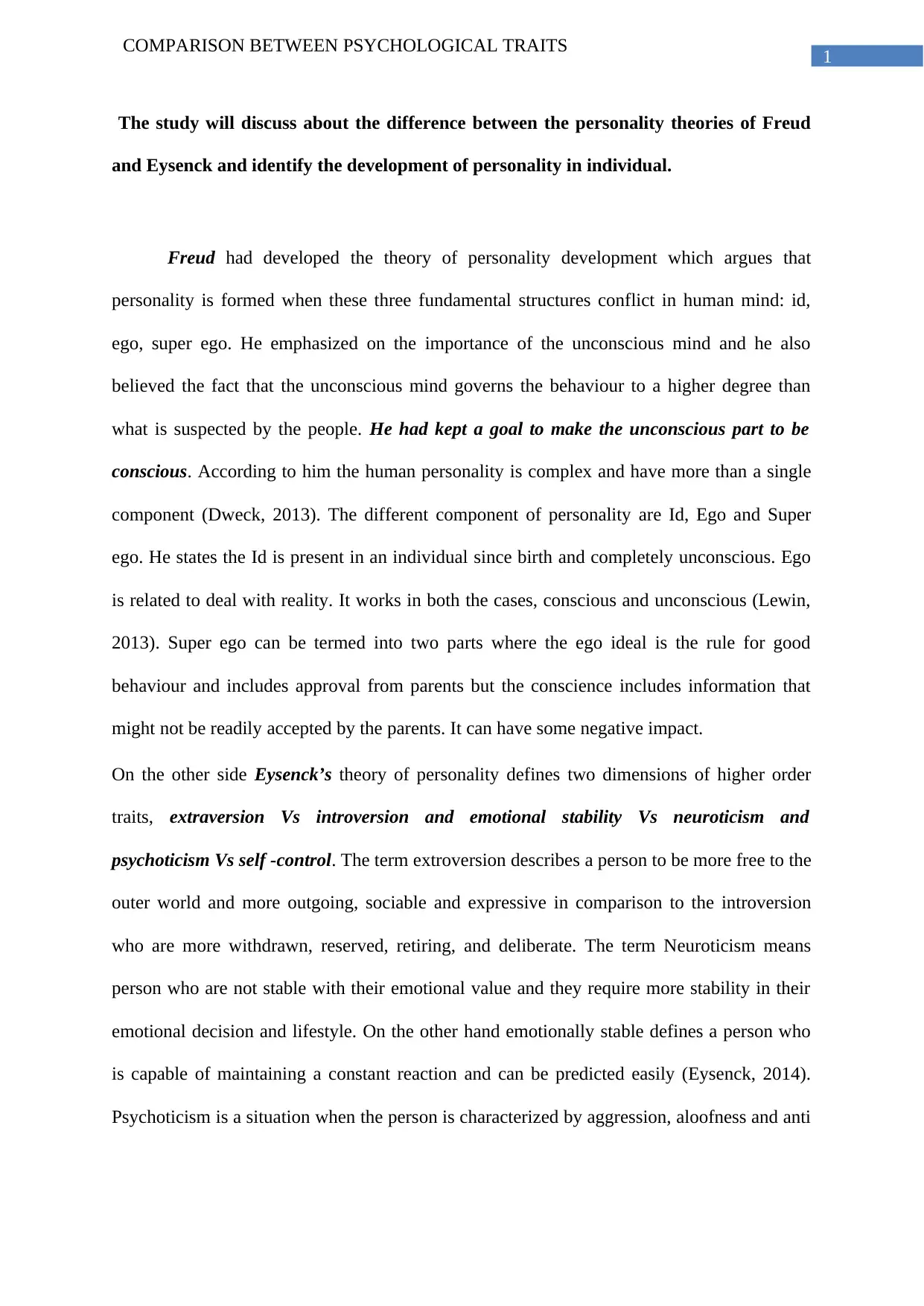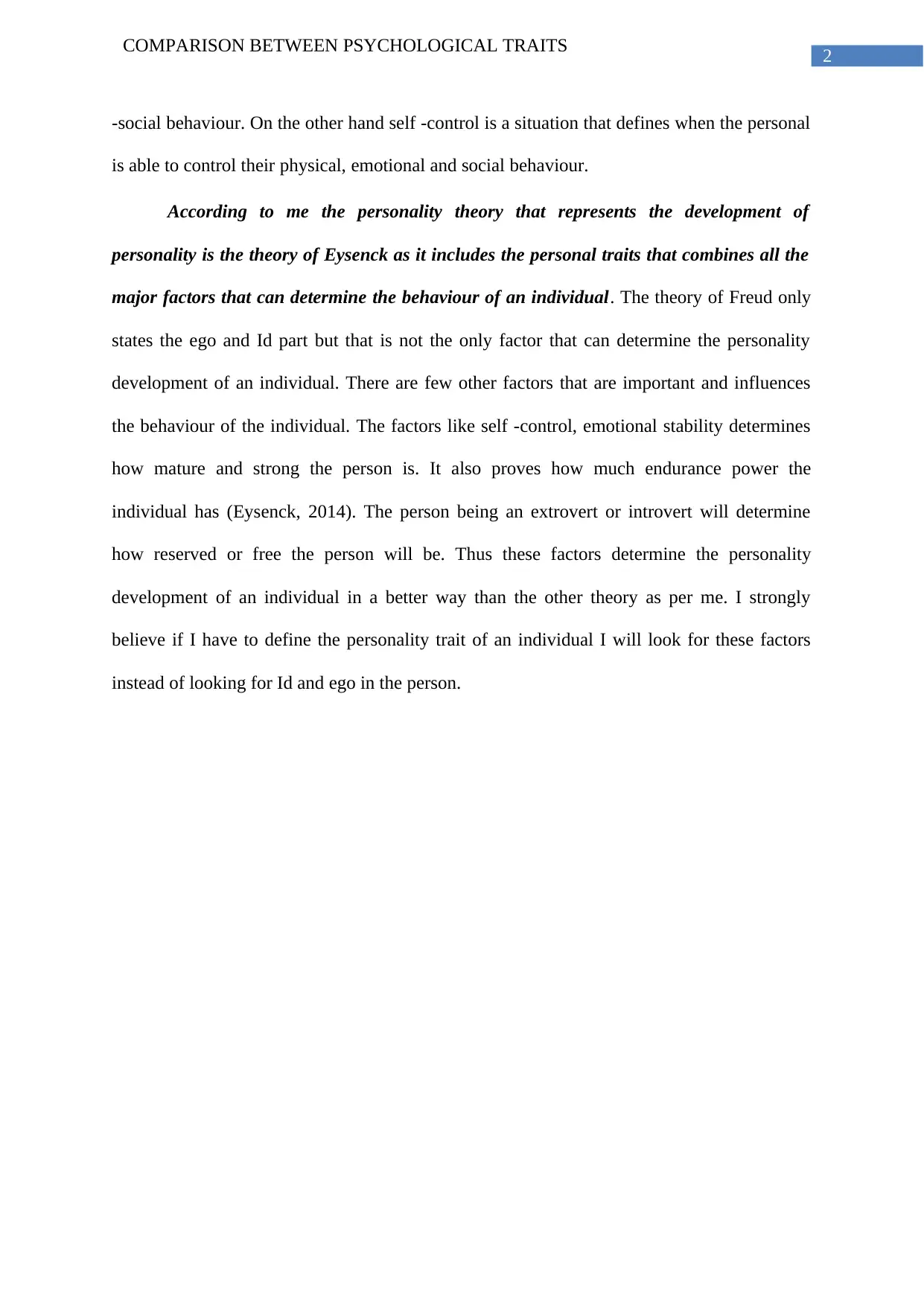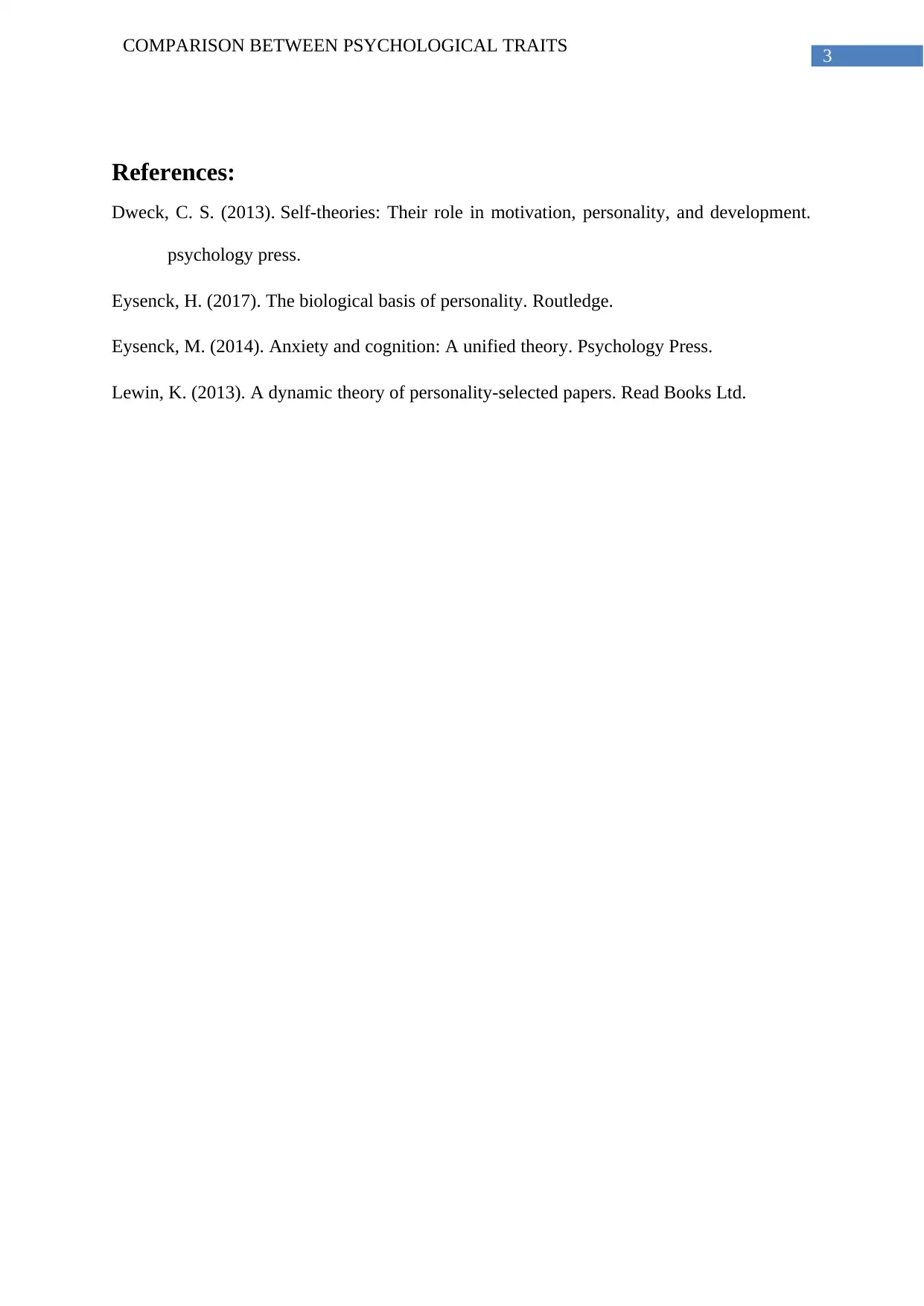Comparative Analysis: Freud and Eysenck's Personality Theories
VerifiedAdded on 2023/06/11
|4
|685
|449
Essay
AI Summary
This essay provides a comparative analysis of Sigmund Freud's and Hans Eysenck's personality theories, highlighting their key differences and approaches to understanding human behavior. Freud's theory emphasizes the conflict between the id, ego, and superego, and the importance of the unconscious mind in shaping personality. In contrast, Eysenck's theory focuses on higher-order traits such as extraversion, neuroticism, and psychoticism to explain personality development. The author argues that Eysenck's theory offers a more comprehensive view of personality development by incorporating factors like emotional stability and self-control, which are crucial in determining an individual's behavior and overall psychological maturity. The essay concludes that Eysenck's traits provide a more practical framework for assessing and understanding personality traits compared to Freud's focus on the unconscious.
1 out of 4











![[object Object]](/_next/static/media/star-bottom.7253800d.svg)